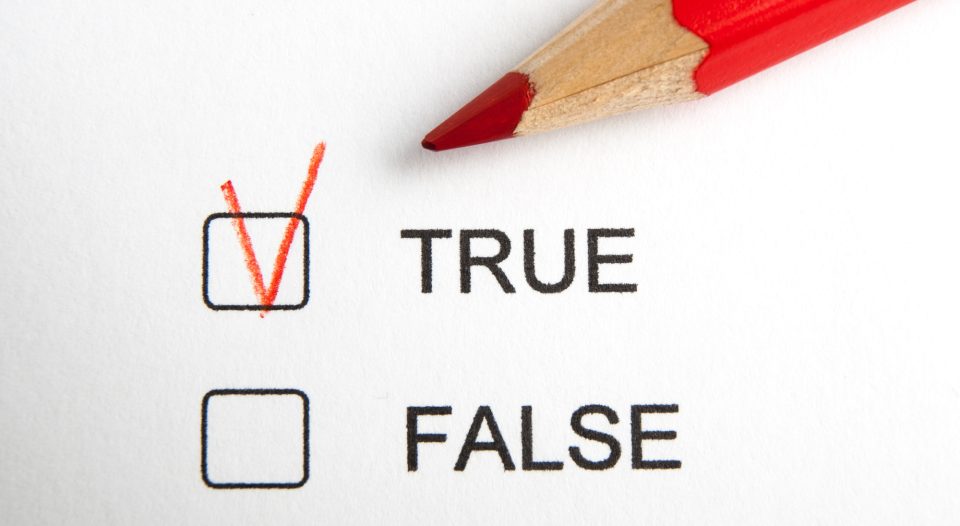Lectionary for Jan. 28, 2024
Fourth Sunday after Epiphany
Deuteronomy 18:15-20; Psalm 11;
1 Corinthians 8:1-13; Mark 1:21-28
There’s a drive-in movie theater not far from my house. A bus parked at the entrance serves as the billboard, with the theme for whatever movie is playing that week painted on the side. Typically the theater closes for the winter after the last round of Halloween horror movies, so the theme of the last movie remains until it opens again in late spring. Currently pictures of ghostly figures are painted on the bus. We will drive by this for months. My middle son is pretty sensitive and has nightmares frequently, but he has learned to ask if he needs to be scared about things or not. So he asked if the scary figures on the bus were good ghosts or scary ghosts. I told him it was just paint and that he didn’t need to worry about it one way or another. He relaxed and said, “I just needed to test and see if they were safe.” I think my son is on to something.
1 John 4:1 says: “Beloved, do not believe every spirit, but test the spirits to see whether they are from God, for many false prophets have gone out into the world.” This week’s lectionary passages are about true spirits that come from God, false spirits that are not from God, and how to know the difference.
In the passage from Deuteronomy we are introduced to “the Prophet” who was to come after Moses. This is the prophet we read about a few weeks ago. When some from Jerusalem came out to see if John the Baptizer was the fulfillment of this prophesy, he said he wasn’t the prophet but looked forward to his relative, Jesus, bringing the fiery words of God to the people.
This prophet is one of the important institutions that Deuteronomy discusses to help the people live lives of justice and righteousness. The people were to follow the leadership of judges, officers, priests, Levites, a king and the prophet. But Deuteronomy is a book well acquainted with human failings and institutional corruption. While these institutions were allowed and supported, they were also to be monitored. Judges and officers were to be watched so they wouldn’t pervert justice for a bribe or recognize the faces of certain kinds of people. The priests and Levites were to be watched so they wouldn’t accumulate wealth. The king was to be watched so he wouldn’t multiply wealth or spouses for himself (looking at you, Solomon …). Leadership is good, but leaders are fallible humans who need accountability.
Aside from the specific temptations to different kinds of leaders, there was an overarching threat to all the leadership models—foreign spirits and spiritualism. Throughout this section (in Deuteronomy 16:21-22, 17:3, 18:9-14 and 18:20) the reader is repeatedly warned about the danger of following other gods and spirits or practicing syncretism. Deuteronomy presumes a world that is filled with lively spiritual presences that are off-limits to those who would follow the One, True Lord.
1 John 4:1 says: “Beloved, do not believe every spirit, but test the spirits to see whether they are from God, for many false prophets have gone out into the world.”
The prophet’s role is to speak definitively for God—and God alone. But even for this prophet, the people were supposed to monitor and evaluate prophetic speech. If what the prophet pronounced in the name of the Lord occurred, great! If not, that person spoke rashly and should be disregarded. Even with the prophet, the people were to test the spirit.
Several hundred years later, in a synagogue in Galilee, Jesus gave the people a lesson on discerning spirits. Jesus spoke and taught with authority, revealing truths about God and Scripture. He was guided by the Spirit of God. Yet, into the scene appeared an unclean spirit who knew Jesus’ identity and wondered what he had come to do to the spirits in the region. Jesus rebuked the spirit and cast it out of the man. The spirit left, and Jesus’ notoriety and popularity grew.
Those in the synagogue that day saw the greatest possible distinction between spirits. Jesus taught the truth about God and humans. An unclean spirit sought to question and challenge his ministry. Jesus taught with his own authority, not in the name of another great rabbi. And in Jesus’ own authority he cast out the unclean spirit.
What does this mean for us today? Many modern Christians live in a spiritually bipolar world, where only God and the devil exist. That sort of thinking is as foreign to the Bible as it was to Martin Luther, who believed in, and interacted with, spiritual beings. The New Testament repeatedly condemns spiritualism and syncretism (Acts 16:16-18; Galatians 4:8-9; Galatians 5:19; 1 Corinthians 10:20; 1 John 5:21; Romans 1:21-23), not because spirits aren’t powerful or incapable of providing insights but because God does not want to share us. Beloved, test the spirits, because there are many false prophets in the world. God wants peace, wholeness, neighbor-love and justice. Anyone or anything that calls for something else is to be rejected.




